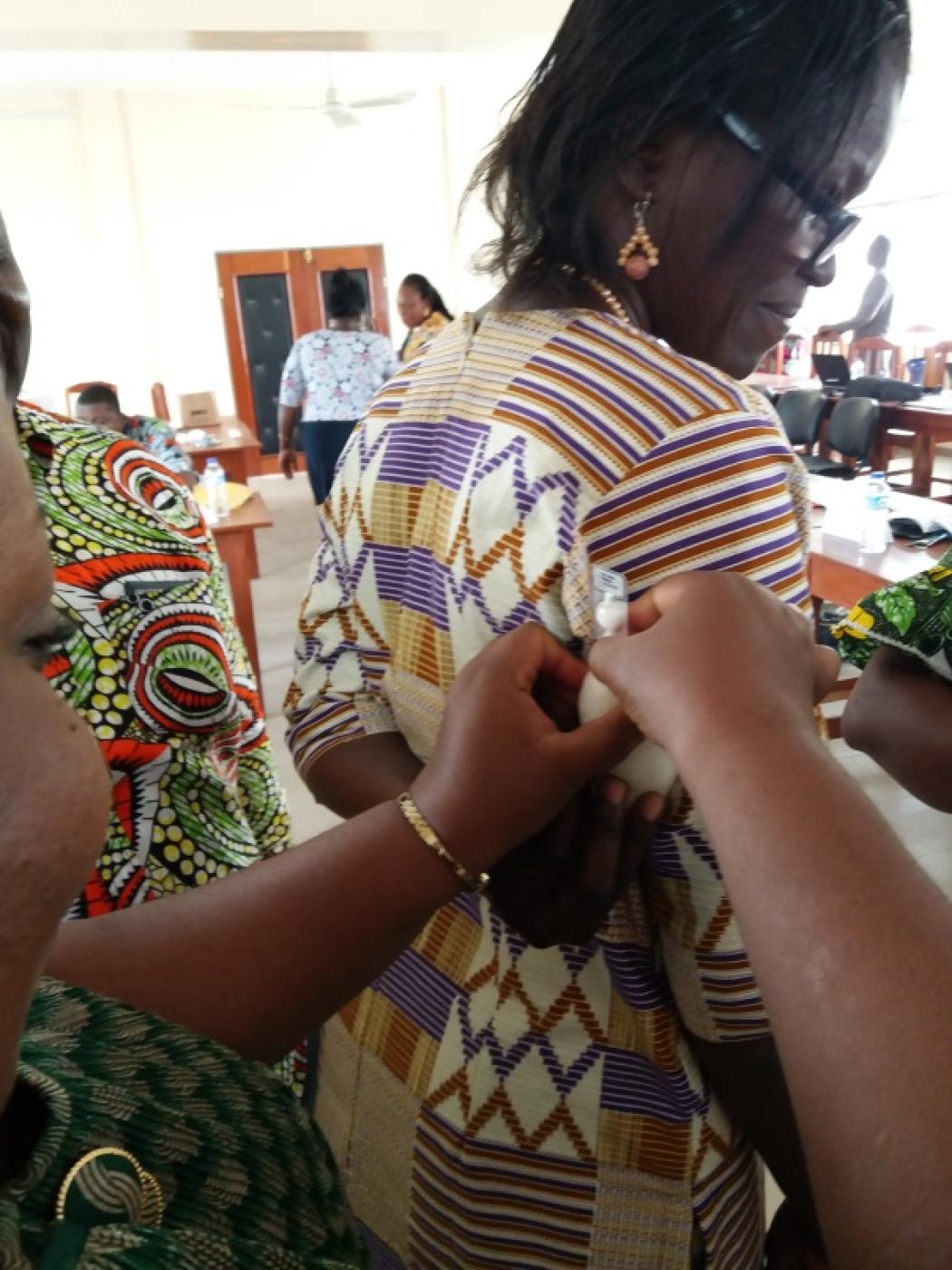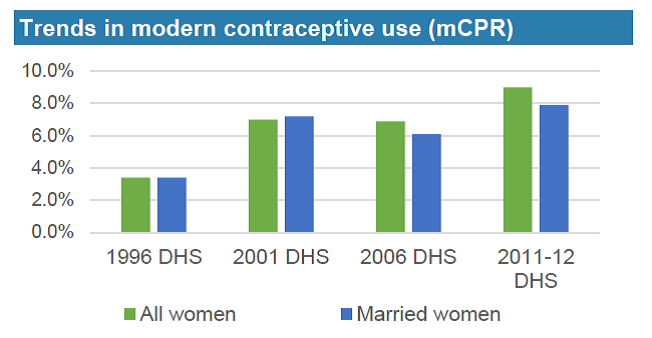From “Non” to “Oui”: How Community Health Workers are Revolutionizing Contraceptive Access, Use in Benin

Relais communaitaire practicing a Sayana Press injection during training. Courtesy of JSI.
By Tishina Okegbe, FHI360 and Nancy Pendarvis Harris, JSI
Benin -- a beautiful, small, Francophone West African country with 11 million inhabitants – has a history of low family planning use due in part to conservative cultural and social norms. With a current unmet need for family planning of 36.3%, and a contraceptive prevalence rate (CPR) for modern methods of 16.1%, Benin lags behind its sub-Saharan African peers in key reproductive health indicators.
Usually, a combination of factors prevents women from seeking family planning services. Many women are geographically distant from traditional health facilities and providers. Many are unaware or misinformed of the benefits of contraceptives. Deeply ingrained cultural norms may prohibit them from seeking contraceptive services.
At the 2013 International Family Planning Conference in Addis Ababa, the Government of Benin pledged to increase its modern-method CPR from 7.9% in 2012 to 20% by 2018. In 2016, the Ministry of Health and the USAID-supported Advancing Partners & Communities (APC) project piloted a community-based access to injectables program in a rural municipality of approximately 80,000 people. Over the nine-month implementation of the program, 24 community health workers (CHWs) were trained to deliver Noristerat, a two-month, progestin-only injectable contraceptive. In a short period of time, more than 450 women received services and adopted Noristerat.
The pilot’s strategy reduced the burden on already overstretched higher-level service providers at health facilities, and leveraged CHWs by training them to provide information and contraceptives to women in communities where sexual and reproductive health services are hard to access, if they exist at all. CHWs can meet women in their homes to provide accurate information, counseling, and contraceptives. This intimate service provision allows women and men to decide for themselves, perhaps for the first time, the number, timing, and spacing of their children.
Today, Benin is preparing to introduce Sayana® Press, a new contraceptive delivery system that will expand the available method mix. Manufactured by Pfizer, Sayana Press has the potential to revolutionize community-based family planning. A small, prefilled, three-month progestin-only injectable contraceptive, Sayana Press is easy to use by lay health workers and, if properly trained to self-inject, by clients themselves. In collaboration with the Benin Ministry of Health and partners UNFPA, the Beninese Association for Family Planning, the URC-implemented Advancing Newborn, Child and Reproductive Health project, and PSI affiliate ABMS (Association Beninoise pour le Marketing Social), the APC project will train 1,000 relais communautaires, who are the lowest level cadre of CHW in Benin, to deliver Sayana® Press in communities in 10 health zones, covering nearly a third of the country. This high-impact practice is expected to increase access to and use of family planning, thus contributing to Benin’s goal of increased contraceptive prevalence.
Are these advances significant? Absolutely. Nearly 225 million women around the world lack access to modern methods of contraception to delay or avoid pregnancy. Furthermore, complications during pregnancy and childbirth, as well as unsafe abortions, contribute to approximately 300,000 maternal deaths each year. Easily accessible contraception is critical to stem the tide of unintended pregnancies, which contribute to poor maternal, newborn, and child health outcomes. And providing contraceptive and other services in communities gives women, youth, and couples an important chance to meet their reproductive needs.
To learn more about CBA2I in Benin or the APC project, please visit https://www.advancingpartners.org/.

